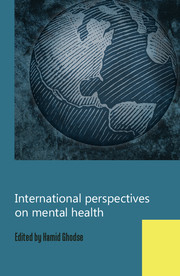Zambia
from Africa
Published online by Cambridge University Press: 02 January 2018
Summary
Zambia, previously called Northern Rhodesia, was a colony of Great Britain until 1964, when it gained independence and changed its name. It is a landlocked country located in southern Africa and shares its borders with Zimbabwe, Namibia, Botswana, Mozambique, Malawi, Tanzania, Congo and Angola. It has an area of 752 612 km2, about three times the size of Britain, but a population of only 12 million.
The country is divided into nine provinces for administrative purposes, each with a provincial headquarters. Although there are 72 languages spoken in Zambia, there are seven main ones: Nyanja, Bemba, Lunda, Luvale, Kaonde, Lozi and Tonga. The official language is English, which is spoken by most citizens. Zambia is largely a youthful country, with 90% of its population less than 45 years old; only 2% are over 65.
Policy and legislation
Since 1992, the country has had five national development plans; the latest was the Fifth National Development Plan (FNDP) in 2006. In the first four plans, there was no mention of mental health. There is only a casual mention in the FNDP, in which the health agenda is dominated by infectious diseases (HIV, tuberculosis, malaria and diarrhoeal diseases) followed by child health and reproductive health. The strategy for mental health is less than coherent.
Zambia still uses the 1951 Mental Disorders Act in which patients are referred to as idiots, imbeciles and invalids. Since the early 2000s, there has been some effort to reform the Act and this reached the stage of a parliamentary draft bill in 2006. However, the draft bill is far from perfect as it is not based on the United Nations human rights charter, which is the bedrock of most current mental health legislation. The limited availability of mental health professionals to spearhead this agenda has contributed to the lack of progress. It has to be said, however, that there is almost no recourse to the Act in clinical practice, as most people are too ignorant to challenge their detention for treatment against their will.
Personnel
Zambia has only three psychiatrists for a population of 12 million. Two of these are not in clinical practice but are attached to the local university. There are no graduate psychologists, occupational therapists or mental health social workers. The bulk of the work in mental health is carried out by clinical officers, who are specially trained medical assistants (see below).
- Type
- Chapter
- Information
- International Perspectives on Mental Health , pp. 52 - 55Publisher: Royal College of PsychiatristsPrint publication year: 2011



